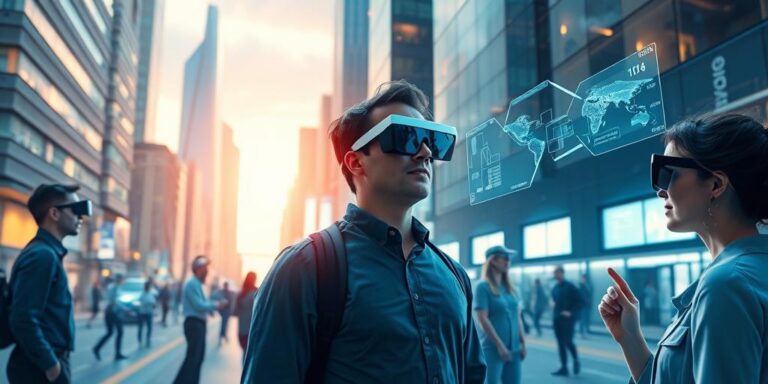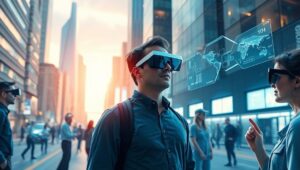The End of the Smartphone as We Know It? (Post-2028 Vision)
The smartphone. It’s been our constant companion, our pocket-sized portal to the world, for over a decade. But technology rarely stands still. As we look beyond 2028, it’s time to consider: is the reign of the smartphone coming to an end? This article explores the potential successors and the forces driving this shift.
The Rise of Ubiquitous Computing
The core concept driving the potential decline of the smartphone is the rise of ubiquitous computing. This envisions a world where computing power is embedded into our environment and everyday objects, rather than being concentrated in a single device.
- The Internet of Things (IoT): Imagine a world where your refrigerator orders groceries automatically, your clothes monitor your health, and your car drives you to work. This interconnected web of devices reduces our reliance on a central hub like a smartphone.
- Smart Homes and Cities: As our homes and cities become more intelligent, many tasks currently handled by smartphones – controlling appliances, accessing information, navigation – will be seamlessly integrated into the environment.
Contenders to the Throne: Potential Smartphone Replacements
So, what could replace the smartphone? Several technologies are vying for the position:
- Augmented Reality (AR) Glasses: Imagine lightweight glasses that overlay digital information onto your view of the real world. AR glasses could provide hands-free access to maps, notifications, and communication tools, essentially replacing the smartphone screen with a virtual one.
- Wearable Technology (Beyond Smartwatches): Think of advanced health trackers, smart clothing, and even implantable devices that monitor our bodies and provide personalized feedback. These technologies could handle many of the smartphone’s health and wellness functions.
- Brain-Computer Interfaces (BCIs): While still in its early stages, BCI technology holds the potential to control devices with our thoughts. Imagine making a phone call or sending a text message simply by thinking about it. This represents a radical departure from the touchscreen interface.
- AI-Powered Personal Assistants: As AI evolves, personal assistants like Siri and Alexa could become more proactive and intuitive. They could anticipate our needs and manage our lives without requiring constant input from a smartphone.
The Forces Driving the Shift
Several factors are contributing to the potential decline of the smartphone:
- Technological Advancements: Continuous innovation in areas like AI, AR, and wearable technology is creating viable alternatives to the smartphone.
- Evolving User Needs: Consumers are increasingly seeking more seamless, intuitive, and personalized experiences. They want technology that integrates seamlessly into their lives, rather than demanding constant attention.
- Health Concerns: Spending hours staring at a small screen can lead to eye strain, neck pain, and other health problems. Alternative technologies like AR glasses and voice-controlled assistants could offer more ergonomic and healthier ways to interact with technology.
- Privacy Concerns: Smartphones collect vast amounts of personal data, raising concerns about privacy and security. As consumers become more aware of these risks, they may seek out alternative technologies that offer greater privacy protection.
Challenges and Considerations
Of course, the transition away from smartphones won’t be without its challenges:
- Cost: Many of the alternative technologies mentioned above are currently expensive and inaccessible to the average consumer.
- Technological Maturity: Some technologies, like BCIs, are still in their early stages of development and require further refinement.
- Social Acceptance: Consumers may be hesitant to adopt new technologies that are perceived as being too intrusive or socially awkward.
- Security and Privacy: Ensuring the security and privacy of data collected by alternative technologies will be crucial to their widespread adoption.
Conclusion: Embracing the Future of Mobile Technology
The smartphone has revolutionized the way we live, work, and communicate. However, as technology continues to evolve, it’s likely that the smartphone will eventually be replaced by a new generation of mobile devices and technologies. By embracing innovation and addressing the challenges ahead, we can create a future where technology is more seamless, intuitive, and human-centered.




